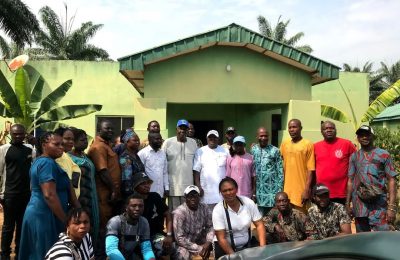

The International Trade Union Confederation (ITUC) has issued a scathing condemnation of the World Bank’s recently launched B-Ready Index, calling it a “dangerous” measure that undermines global labour standards.
The index ranks countries on various labour policies, which the ITUC argues incentivises harmful competition to weaken protections for workers. This marks a serious rebuke from one of the world’s most influential labour advocacy groups, which says the World Bank’s approach threatens the dignity and rights of workers globally.

ITUC General Secretary, Luc Triangle, didn’t mince words in his criticism, stating that the B-Ready Index’s approach promotes a “race-to-the-bottom” by encouraging countries to erode labour rights, working conditions, and social protections in order to rank higher.
“There is no shortcut for democratic consultation and social dialogue on labour market practices,” he said. “Reforms based on such an unbalanced analysis will be misguided at best and dangerous at worst.” This rebuke reflects growing frustration with international institutions pushing for deregulation at the expense of workers’ rights.
Trade unions around the world have criticized the B-Ready Index’s methodology, arguing that labour policies cannot be equated to other simple metrics like business licenses. The ITUC’s primary complaint is that labour conditions require context-sensitive analysis and consultation, not blanket rankings. “Labour is not an appropriate topic for the B-Ready Index and should be removed,” the ITUC said, highlighting that fundamental worker protections are at stake if the index’s influence grows.
The ITUC is also deeply disappointed with the lack of transparency in developing the index. Despite repeated requests from unions to engage with the World Bank on this and similar initiatives affecting workers, the Bank proceeded without meaningful consultation. Ignoring the input of democratic workers’ representatives, the Bank’s approach has, in ITUC’s view, missed the mark and risks undermining hard-won labour protections in several countries.
A major flaw in the B-Ready Index is its failure to account for actual implementation of labour laws, the ITUC asserts. The index relies on formal assessments of national labour laws without examining whether these laws are enforced in practice.
For example, the Philippines, which the ITUC Global Rights Index ranks as one of the 10 worst countries for workers, ranks in the top 10 for labour in the B-Ready Index. Other countries with similarly poor records on workers’ rights, such as Indonesia and Hungary, also score highly. This disconnect raises serious concerns about the index’s reliability and validity.
Furthermore, the ITUC criticises the B-Ready Index for promoting a shift away from contribution-based social protection schemes in favour of tax-funded models.
According to the ITUC, this shift risks widening gaps in social protections, particularly in low-income countries where contribution-based schemes have provided critical safety nets. The ITUC argues that the World Bank’s one-size-fits-all approach could dismantle successful systems in favor of less stable, tax-dependent models.
The B-Ready Index’s push for greater labour “flexibility” is also a point of contention. Its emphasis on reducing “regulatory burdens” promotes practices like unlimited fixed-term contracts and minimum wage reduction, weakening job security and hindering collective bargaining rights. Such measures threaten to destabilise labour markets and force workers into increasingly precarious positions. By prioritizing deregulation over worker protection, the index risks turning labour policies into a race for the lowest standards, jeopardizing workers’ rights worldwide.
According to ITUC, the B-Ready Index marks an alarming revival of the World Bank’s previously discredited Doing Business Report, which faced backlash and was eventually scrapped in 2020 over similar concerns. Trade unions and civil society organizations fear that, despite past lessons, the World Bank is rebranding old, harmful methodologies. The ITUC warns that unless significant changes are made, the B-Ready Index could undermine global labour rights progress, putting vulnerable workers at greater risk than ever before.
READ ALSO: Northern govs, Emirs reject tax reform bill








